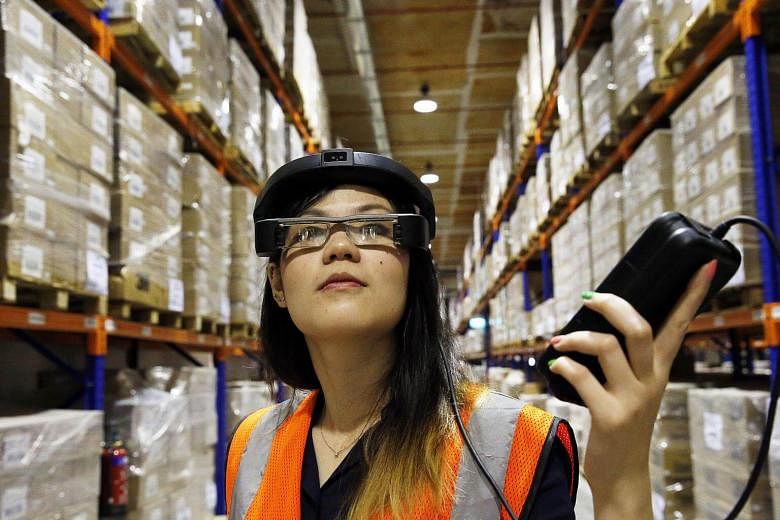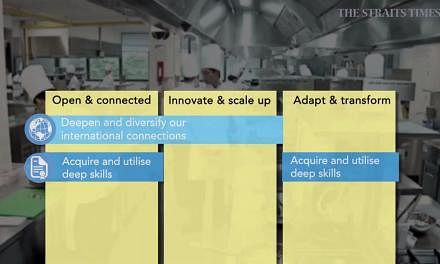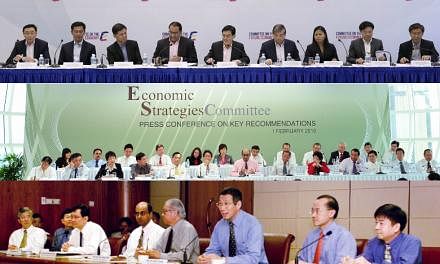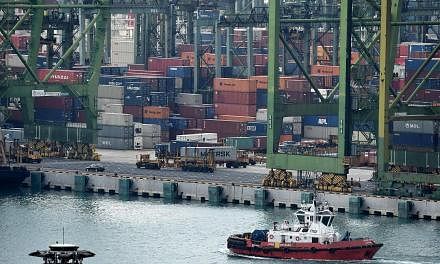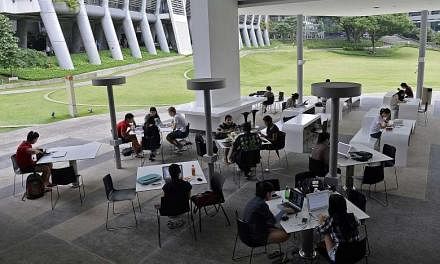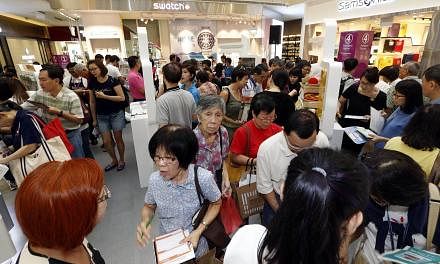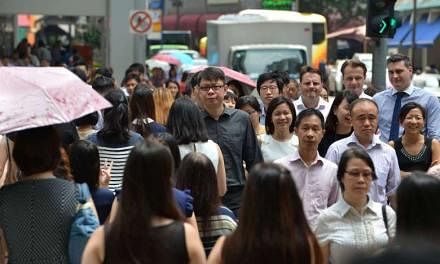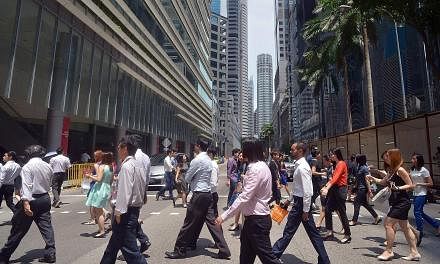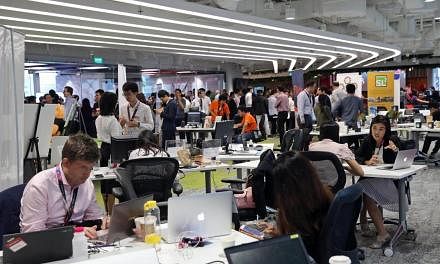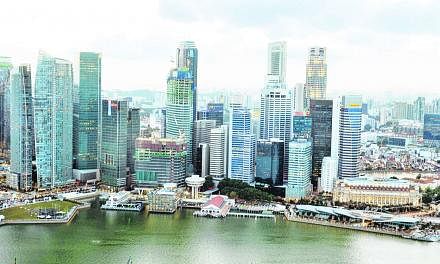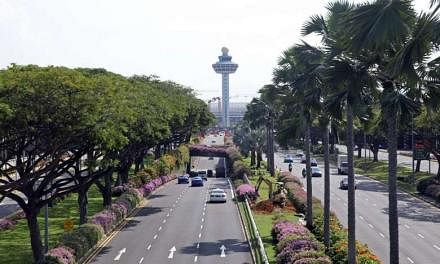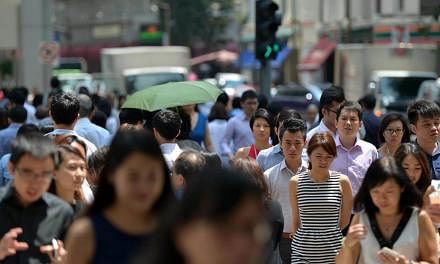SINGAPORE - In a report released on Thursday (Feb 9), the high-level Committee on the Future Economy highlighted the development of Industry Transformation Maps (ITMs) as one key strategy to position Singapore's economy for the future.
It also said these roadmaps should be grouped "to foster synergies across industries".
The Industry Transformation Maps are part of a $4.5 billion programme announced in the 2016 Budget, aimed at promoting growth, helping companies become more competitive, and creating good jobs in 23 industries here.
Citing the benefits of a cluster approach to roadmaps, the committee noted that there is potential to develop a ready pool of skilled workers who can take up jobs within various industries that require similar skills such as the food services and hospitality industries. It also cited how precision engineering firms could become more competitive with support from companies within other manufacturing sectors, such asaerospace.
Six of these industry-specific roadmaps have been implemented, while the remaining 17 are slated to be launched by the end of this year. Together, the roadmapswill cover about 80 per cent of the economy .
The committee also said customising the roadmaps to the needs of each industry remains key, noting that different industries have different challenges and opportunities."As markets and technologies change, each industry will need to react differently. We should continue to adopt a tailored approach for each industry, so we are focused on where the potential can be best realised in each case."
Roadmaps for industries with good growth prospects will help companies upgrade their capabilities to seize new opportunities and create good jobs.
The logistics industry, for example, is positioned to tap on Asia's rising middle-class and the growth of e-commerce.
"The logistics ITM will support companies to leverage technology and adopt best-in-class supply chain practices. In addition, the logistics industry skills framework will support Singaporeans to upgrade their skills and take on jobs in this sector," said the committee.
Industries that require large numbers of low-skilled workers will have to ramp up productivity and upgrade their jobs.
The roadmap for the retail industry, which is facing disruption from e-commerce players, will encourage productivity growth through the use of innovative business formats and technology, said the committee.
These could include storefront self-checkout and cash management, as well as backend shared logistics services such as self-collection lockers.
Singapore should be alert to changing industry configurations as well, added the committee. "New industries that do not fit into existing classifications will emerge. When they do, we should facilitate, not impede, such developments."
In sum, the committee said the roadmaps should be used to integrate planning and implementation to ensure all of the strategies can come together in a coherent way to meet the needs of Singapore's diverse industries.
"Our approach is not to pick winners, but to build capabilities to give our enterprises and workers the best chance of succeeding in the open market. While some enterprises will succeed, others that are slow to adapt will not, and we should accept this," it said.
